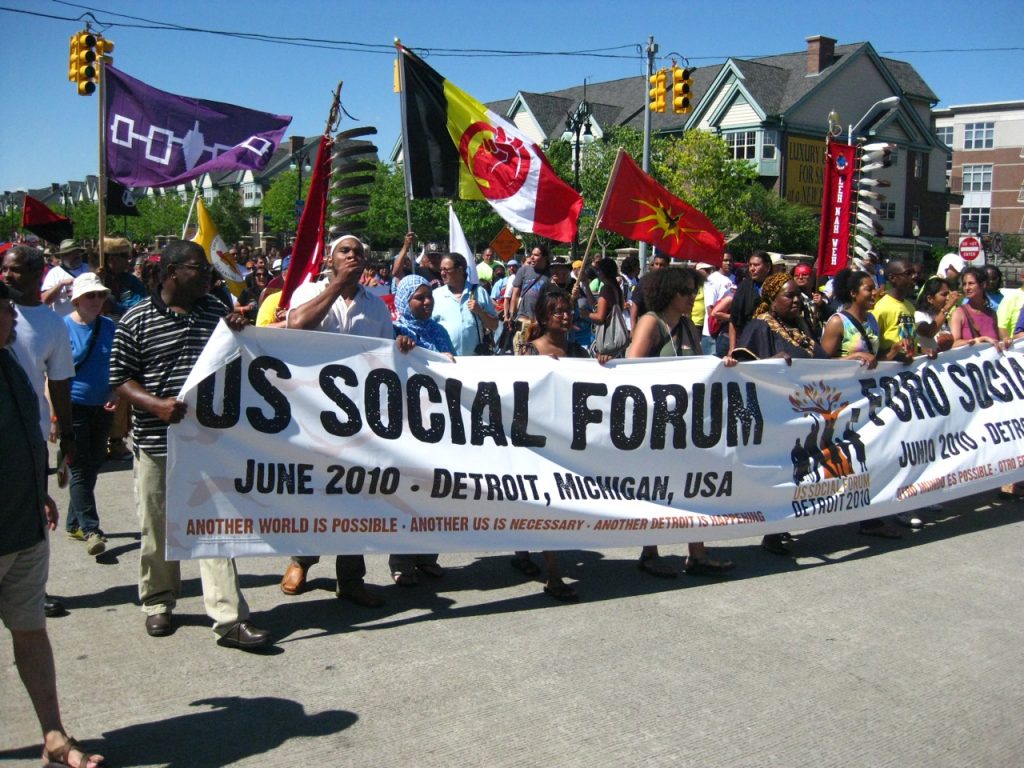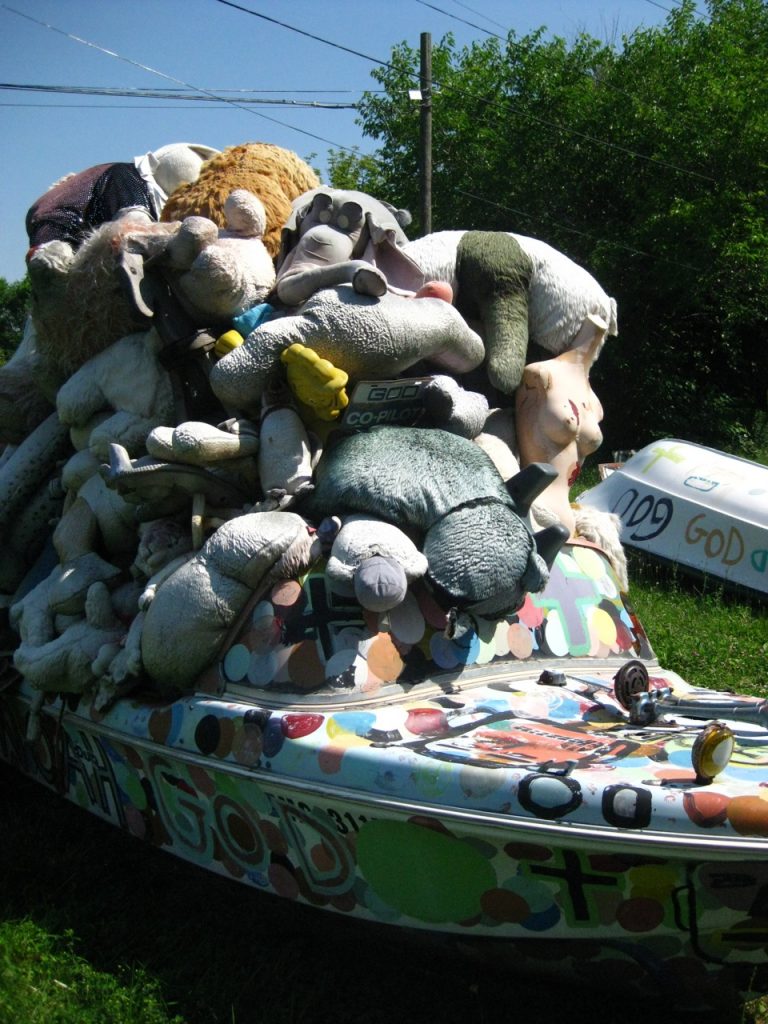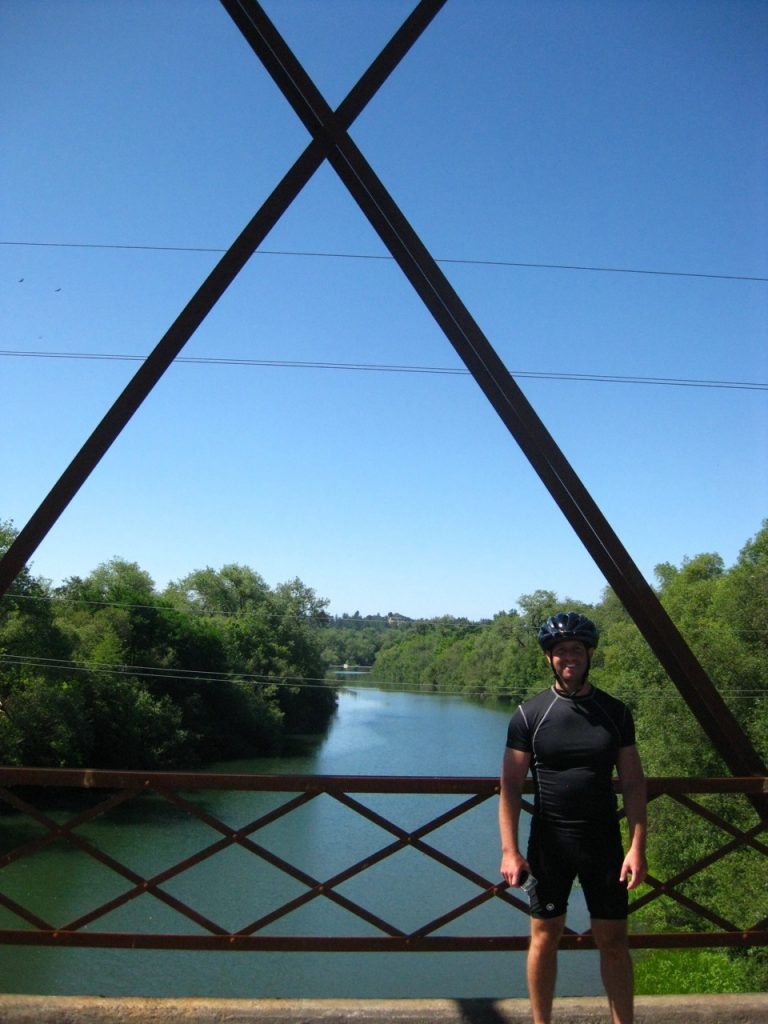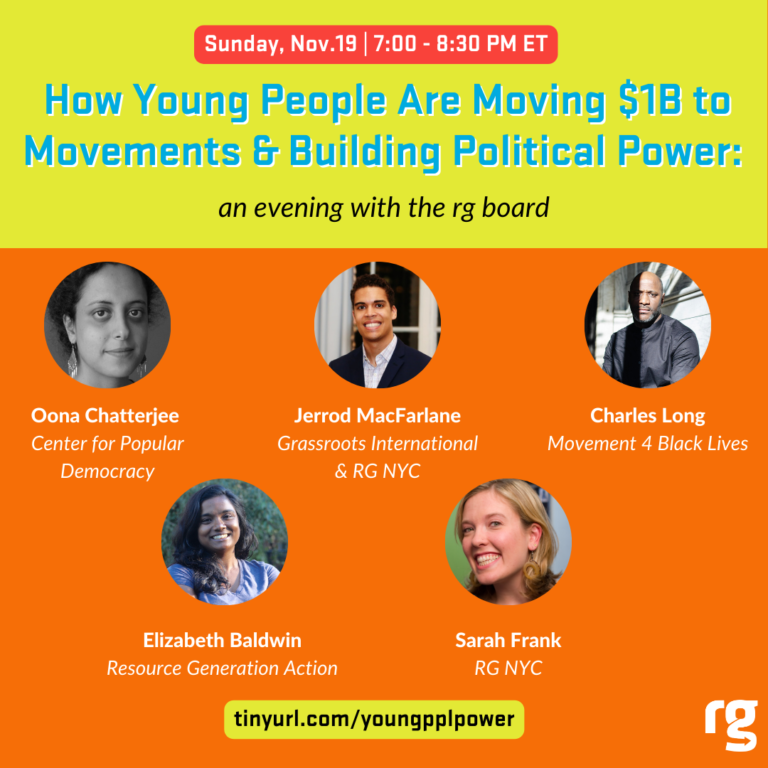USSF and Biking

I stepped off the plane from the US Social Forum (USSF) in Detroit, and onto a luxury bicycle tour with my family. I never expected I’d hear the words, “luxury” and “bicycle” in the same sentence. But here I am, scribbling in my journal, from my room, a French Country style turret tucked into feathers of wisteria vines, at the MacArthur Place Hotel in Sonoma.
Most of the other people on our trip came in couples; we’re the only family here, introducing ourselves over and over. Hi, I’m Cara. I live in Seattle, and I’m a young person with wealth. Only I don’t say that last part, because it’s implied. These trips cost a few thousand for five days of bike riding and wine drinking. What do we pay for (or should I say, what do my parents pay for)? Well, two full time guides, for one thing. Brand new Fuji bikes, a van that follows us in case we don’t feel like biking the day’s 20-40 miles, and hotel stays for all five nights. Continental breakfast comes with the price of admission, as well as select other meals.
Ironically, I had all these things at the Social Forum: through Couch Surfing.com, my friend, S., and I had two local guides; we rented old mountain bikes from folks in the apartment building across the street; and we had the front room of our hosts’ place all to ourselves, the pull-out mattress off of the couch and onto the floor for added comfort. (Full disclosure: we did buy breakfast every morning, and there was never a van following us to and from the forum, although there were city buses.) Somehow, I don’t think my other family members would call couch surfing, or riding whiny bikes where the chains threaten to snap on every turn, or going to inner city Detroit, a vacation, despite the similarities.


There are six in my family. Five of us are on this trip: my mom and step-dad, my little sister, and my step-brother. My older sister skipped out when she got relocated to London in April, citing jetlag as a significant factor in her decision not to come. None of us live in the same cities, save for my step-dad and mom, who are from New Orleans, where I grew up. This is the second trip of it’s kind; the first came less than a year after Katrina, when my parents required us to meet them for a therapeutic, post-Katrina villa stay in Tuscany. Compared to that trip, this trip was nearly optional.
There are thirteen others on the tour; we met them all at dinner the first night, at the MacArthur Place Hotel’s award-winning restaurant, Saddles. Still living off of the endorphins from the Social Forum, I imagined we had a conversation about class privilege over earthy pinots and grass-fed filets. Instead, we discussed the week’s itinerary, and played “two truths and a lie,” to get to know each other better.
How the context can shift. Last week, at the Forum, my main objective was to talk about, own and admit what class background I come from. For Resource Generation members, it was about being “outed” in a larger context, one where not everyone who knows about us is similarly wealthy. This task reminded me of dreams where my dandruff is so bad that everyone can see it, and I’m leaving a white trail behind me as I go. It’s not an impression I’m used to, or comfortable with people having of me – rich girl. Private school educated, trust funder, former equestrian, the child of golfers. You’d think, with all these signifiers, that I’d be accustomed to the classification. But there are lots of things you can hide, three thousand miles from the childhood facts.
While tabling for Resource Generation with N., another delegate, this woman wearing a deep maroon ensemble stopped to read our signs.
“So, are you young people with wealth?” she asked, somewhere between a question and a statement.
We glanced at each other. Who was going to take it? I sucked in a big breath of air.
“Yeah — we are,” N. answered.
“Yep, young people, wealth,” I echoed, potentially audible.
“Well, I’m not wealthy, and I don’t know any wealthy people,” she said. She pinned her eyes on me for a second, scoping for dandruff, I think, and then wheeled around, and stalked off to Rainforest Action Network, or the ceramics vendor.
I let it out. “That was one of those moments I was scared I would have here.”
“I was scared of worse than that,” N. said. “At least she didn’t stay for more.” No, it only took her one sentence to unmoor us from everyone else at the Forum.
There were other moments, too. Ones that were less isolating, more productive, and supportive. The RG workshop was held at Wayne State University. To get there, I rode my bike from the Cobo Hall Convention Center, through a maze of historic downtown buildings and shops, onto Cass Avenue. About a mile onto Cass, Detroit starts looking like “Detroit”—empty streets, empty lots, empty buildings with busted out windows. It’s a great place to bike, because the Motor City roads are often empty of cars, too. It’s not that there aren’t people – there are lots – but there is about three times as much city as inhabitants, or at least that’s how it seems. As I neared Wayne State University – quelle surprise! A bakery, an art collective, a bike shop, two bars, three more bars, two churches, and a corner store. Traffic lights work, and people walk on sidewalks, in and out of the college. People live in Detroit? Detroit is not “a war zone”? (as someone referred to it on my bike trip.) This city’s keeping some secrets.
The RG workshop, “Class Privilege and Activism,” was crowded when I got there ten minutes late, sweaty, and a little stressed for time. Wayne State is a few miles north of Cobo Hall; over the next half hour, the workshop got so packed that people began to panic a little about space, and it was nearly impossible to keep a tiny pathway open for fire escapes. There were people “at the workshop” standing in the hallway. Apparently, I’m not working alone on class privilege.
In one activity, we were given sets of cards, parodying some of the personality types of people with privilege. The format was based on the Garbage Pail Kids from the ‘80’s, which themselves poked fun at Cabbage Patch Kids, those earnest, chubby-cheeked, big-eyed baby dolls that were popular for some reason. A parody of a parody — nice. There was “Raphael, the Waffle,” “Daddy Warbucks,” and “Ice, Ice Baby.” Each character came with a picture and name on the front, and a description of the personality trait on the back. The cards described behaviors people exhibit because of class privilege, such as over-committing and then flaking on those commitments; knowing-it-all; bossiness in group situations; or being spacey and unaccountable.
We looked at them in groups of four of five – my group was made up of folks I’d just met at the workshop. Because so many people came, there weren’t enough cards to go around. We got a few in my circle on the floor, and studied the fronts and backs. “Oh, I do that,” I said. “Yep, do that, too.” We were passed a few more, and I had a similar reaction to most of those. So many of my typical behaviors are results of my class background. Go figure! And yet, while it shouldn’t be surprising, it was, for many of us in the room. One voice, hidden at the back by rows of heads and bodies, reflected, “I didn’t even identify as a class-privileged person until I looked at those cards!”
The RG workshop allowed me to feel like there’s lots of work I can do – that fostering an awareness about class privilege can help me be more accountable to my community. But what about as a member of my family? Let’s come back to the bike trip – I’ll bring you in a “Comfort and Luxury” tour van, you’ll get off in the parking lot and proceed through the swinging double doors to the Concierge’s desk, where sparkling teeth and attentive eyes will inform you of free wine-and-cheese hour from 5-6, the hotel’s extensive DVD collection for rental in the library, and where your room is on the grounds map. You’ll walk out the door, get lost and find yourself peering over a trellised fence to bikinis and pedicured toes in lawn chairs on the edge of a glittering pool, and you’ll keep walking, until you climb a set of stairs to a sun-drenched landing where the wisteria is already knocking on the door to get in. Run your plastic card down and then back up, and turn the handle to find me, belly down, feet in the air, writing on the bed across from the flat screen tv, and the wet bar, trying to make sense of what happened in Detroit in the hour between a bike-about town and 5 o’clock wine-and-cheese. My little sister is in the bathroom, straightening her hair in the mirror.
Our first night, I went swimming, like I plan to do every night we’re here. The pool was warm, shallow, and flanked by a well-lit hot tub. P., a fourth grade teacher who had come with her sister, was making water angels up and down the length of the pool. She stopped near me, and we professed our love for night swimming, warmth and stars. Then she asked about the orange USSF bracelet I still had on my left wrist. I told her what the USSF was, and about my role there as part of Resource Generation.
“So, how do you rationalize doing that work, and being on this trip?”
I laughed. Maybe there were people I could talk to here. “I don’t, really. My family wants me here. I want to be around them. When I’m home, I’ll make choices that are more me.” She nodded her head, and gave me that thoughtful, hard to read teacher look. The one with an eyebrow raised, a half smile, and intent eyes, an assertion of an unspoken truth deeply buried, one I don’t even know is there. Minutes later, she got out, wrapped an oversize towel around herself and wished me goodnight.
Paddling around after she’d gone, I wondered if I’d been lying. Was it really that – I make some decisions out of obligation, and some out of real feeling? Aren’t all of my decisions and choices somehow class-based, because I can only make choices from my own experiences? If so, why don’t I feel here the way I did in Detroit? Is it all really the difference between luxuriating silently in class privilege, as if the whole world had the same opportunities for night swims, versus confronting it head-on for what it is, a rare privilege, afforded by oppressing others? And what about other values – like the importance of family? Can I hold onto those, if it means subduing some of myself to be around?
These questions are still unanswered. When I tried to talk to my mom about the Social Forum, she spaced out, then told me a story about her dog and a water bowl. When I told my step-dad, he brought up the oil spill, “the liberals,” and “my president,” who “doesn’t know anything about the Gulf Coast.” My sister was similarly unmoved, even when I showed her pictures from the three-block Heidelburg art installation in a Detroit residential neighborhood. On the other hand, thanks to my family, I was able to wake up every morning at 7 and go bike riding through vineyards and river valleys, up and down the coast, and through the redwood forest, right next to my mom, who was also loving it. She and I did talk about class, and about her money story — how her father came to own a glove factory after World War II through access to cheap loans. My step-dad and siblings lagged behind, but we sat together at meals, and laughed about things that come easy. We still had it – we could have fun, and enjoy each other.
Being in Detroit, and seeing the effort people put into their workshops, the sacrifices made to get to the Forum, and the enthusiasm for connecting with others, inspired something deeper in me, too. It made me remember to appreciate and live in the moment, to be thankful for my choices, rather than hating them, or forgetting that they exist at all. It can be hard to identify conflict, and realize I am fortunate to see it and know it. But if social change is about creating trust and understanding, then I have to keep working towards those goals with all of my communities, even if the details of how that’s established are nearly opposite from community to family. And with the wisdom of appreciation as my guide, I was able to have the most wonderful, though challenging and dichotomous, two weeks in a long, long time.
Cara grew up in the suburbs of New Orleans but has lived in the Pacific Northwest since 2003. She is a current and aspiring ESL teacher and is currently involved in the local RG Seattle Chapter.

